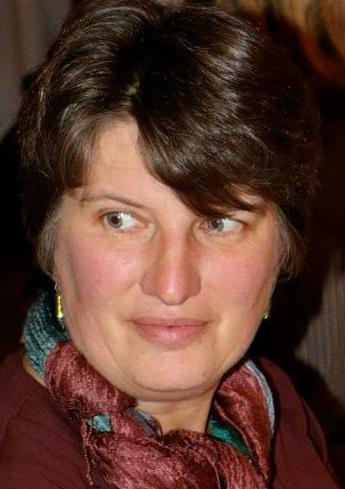Cultural Heritage and Policy in a Digital Age

Main content
Course leaders: Professor David G. Hebert, HVL and Professor Tamsin Meaney, HVL
We live in an exciting age in which new technologies are rapidly transforming traditional life worldwide, often in ways that are disorienting to both the most and least powerful in society.
This intensive course will equip doctoral candidates with specialised competence in the array of complex issues associated with research and policy making at the intersection of "big data" and cultural traditions.
We will critically examine the rise of digitisation and its implications for indigenous, migrant and minority heritage, as well as multiculturalist educational and cultural policies. We begin by exploring the role of research and social theory for the innovation of public policies, and then proceed to a survey of the epistemological foundations of "big data", interculturalism and indigeneity, as well as contemporary theories of postcoloniality and glocalisation.
These social processes and mechanisms are considered from a global perspective, through case studies that illustrate changing notions of cultural identity and intellectual property, particularly through processes of repatriation among indigenous and minority peoples in the Nordic countries, Oceania (New Zealand), East Asia (Japan), South Africa, and the Americas. Special attention is devoted to grappling with ethical dilemmas in the digitalisation of traditional artefacts, including stories and music.
The course will enable PhD candidates from various arts, humanities and social science fields to enhance their ability to engage with critical cultural policy issues in both their scholarly and practical work for universities, museums, libraries, and government agencies. It will be of particular interest to those engaged in digitalisation projects, cultural projects with Indigenous and minority groups, and projects that include combinations of these aspects, which could be in the fields of computer science, ethnography, education and social sciences.
Scehdule
We envision the course as having 8 instructional units of 3.5 hours each, offered in an intensive co-taught format across 4 days, with session one from 9:00 to 12:30, and session two from 13:30 to 17:00. Additionally, we would plan reasonable coffee/restroom breaks. The Introduction and Conclusion units would cover general themes of the course, with 6 units on more specific topics. The course units are envisioned as follows:
- General Introduction to Cultural Heritage and Policy in a Digital Age
- Indigeneity in a time of Postcolonialism, Glocalisation and “Big Data”
- Ethics, Intellectual Copyright, and Historical Archiving
- Performing Arts as Intangible Cultural Property
- Interpretation and Use of Historical Artefacts in the Present Day
- Working with Indigenous Communities in Digitisation and Archival Projects
- Rethinking Representations of Cultural Heritage
- Concluding Summary Session
Required reading
Doolittle, E. (2006). Mathematics as medicine. In P. Liljedahl (Ed.), Proceedings from Canadian Mathematics Education Study Group 2006 Annual meeting, University of Calgary June 3-June 7 2006 (pp. 17-25). Calgary: University of Calgary. Available from http://files.eric.ed.gov/fulltext/ED529562.pdf
Christensen, J. R. (2011). Four steps in the history of museum technologies and visitors’ digital participation. MedieKultur: Journal of Media and Communication and Research, 50, 7-29.
Gay, G. (2013). Teaching to and through cultural diversity. Curriculum Inquiry, 41(1), 48-70.
Go, J. (2016). Postcolonial Thought and Social Theory. New York: Oxford University Press (Introduction, pp.1-17).
Hilder, T. (2014). Sami Musical Performance and the Politics of Indigeneity in Northern Europe. Lanham, MD: Rowman & Littlefield (chapters 1 & 2).
Howard, K. (2017, in press). The Life and Death of Music as East Asian Intangible Cultural Heritage. In D. G. Hebert, (Ed.), International Perspectives on Translation, Education, and Innovation in Japanese and Korean Societies. Dordrecht: Springer.
Lambert, J. (2009). Maori symbolism – the enacted curriculum Indigenous Voices, Indigenous Symbols., pp.29-37.
Love, T. & Tilly, E. (2014). Acknowledging power: The application of Kaupapa Māori principles and processes to developing a new approach to organisation–public engagement. Public Relations Inquiry, 3(1), 31/49.
Newell, J. (2012). Old objects, new media: Historical collections, digitization and affect. Journal of Material Culture, 17(3), 287-306.
Roudometof, V. (2016). Glocalization: A Critical Introduction. New York: Routledge. (pp.1-61).
Salmond, A. (2012). Digital subjects, cultural objects: Special issue introduction. http://journals.sagepub.com/doi/abs/10.1177/1359183512453531
Schneier, B. (2014). Data and Goliath. New York: W.W. Norton.
Thram, D. (2014). The Legacy of Music Archives in Historical Ethnomusicology: A Model for Engaged Ethnomusicology. In D. G. Hebert (Eds.), Theory and Method in Historical Ethnomusicology. Lanham, MD: Lexington Books, pp.309-335.
Trinick, T., Meany, T. & Fairhall, U. (in press). Cultural and Mathematical Symmetry in Maori Meeting Houses (Wharenui).
Recommended reading
Cameron, F., & Kenderdine, S. (2007). Theorizing digital cultural heritage: A critical discourse. Cambridge, MA: MIT Press.
Hebert, D. G. & McCollum, J. (2014). Methodologies for Historical Ethnomusicology in the Twenty-First Century. In D. G. Hebert (Eds.), Theory and Method in Historical Ethnomusicology. Lanham, MD: Lexington Books, pp.35-83.
Parry, R. (2007). Recoding the museum: Digital heritage and the technologies of change. Routledge.
Hebert, D. G. (2018, in press). Music in the Conditions of Glocalization. In D. G. Hebert & M. Rykowski (Eds.), Music Glocalization: Heritage and Innovation in a Digital Age. Newcastle: Cambridge Scholars Publishing.
Rykowski, M. & Hebert, D. G. (2018, in press). Conclusion: Toward a Theoretical Model of Music Glocalization. In D. G. Hebert & M. Rykowski (Eds.), Music Glocalization: Heritage and Innovation in a Digital Age. Newcastle: Cambridge Scholars Publishing.
Course leaders
David G. Hebert, PhD, is a full Professor in the Faculty of Education at Western Norway University of Applied Sciences, Bergen. A widely published and cited scholar, he is now completing his sixth book since accepting the professorship in Norway. Dr. Hebert has taught and conducted research on each inhabited continent, and is especially interested in international-comparative approaches to music and education. He has authored articles in over 30 different professional journals, and serves in editorial roles for various scholarly journals and academic presses. Prof. Hebert has also mentored several doctoral students (serving as main supervisor, committee member or external examiner on 15 doctoral committees for universities in Norway, Sweden, Finland, Spain, Canada and the USA), and has received grants from several state governments for research projects.
His recent books include Wind Bands and Cultural Identity in Japanese Schools (2012, Springer; Japanese version forthcoming on Artes Publishing), Patriotism and Nationalism in Music Education (co-edited with Alexandra Kertz-Welzel, 2012, Ashgate; 2016, Routledge), Theory and Method in Historical Ethnomusicology (co-edited with Jonathan McCollum, 2014, Lexington Books), International Perspectives on Translation, Education, and Innovation in Japanese and Korean Societies (2018, Springer), and Music Glocalization: Heritage and Innovation in a Digital Age (co-edited with Mikolaj Rykowski, 2018, in press, Cambridge Scholars). He is currently working on two new books: A Global View of Music Education (co-authored with Jiaxing Xie, Chinese version for Shanghai Education Press, forthcoming), and Advancing Music Education in Northern Europe (co-edited with Torunn Bakken Hauge, Taylor & Francis, forthcoming).
Tamsin Meaney is a professor of mathematics education at Western Norway University of Applied Sciences. Her research has included considerations of how Indigenous languages can be used for the teaching of a Western domain of knowledge, in this case mathematics, particularly in Australia and New Zealand and more recently in Norway. It is her experiences of discussing, with Indigenous colleagues, ethical issues connected to who is making decisions about the use of artefacts and traditional processes that forms the basis for her contributions to this course.
She has analysed and written for almost twenty years about her experiences as a non-Indigenous researcher that provide theoretical insights into how educational research needs to be reconceptualised from being an objective description of observable facts and how teaching considerations need to move beyond the immediacy of focusing on classroom activities to a recognition of the wider and long-term impact of cultural appropriation. These publications form part of her more than 70 peer-reviewed research publications in journals and books. She has extensive experience of PhD supervision and has been part of assessment committees in several countries. In October 2017, she received a 12 million NOK grant to do research about multilingual classrooms from the Norwegian Research Council as the leader of the research group, Critical Perspectives on Mathematics Education. This project will begin in 2018 and run for 4 years. A number of PhD stipends will be connected to this research project

